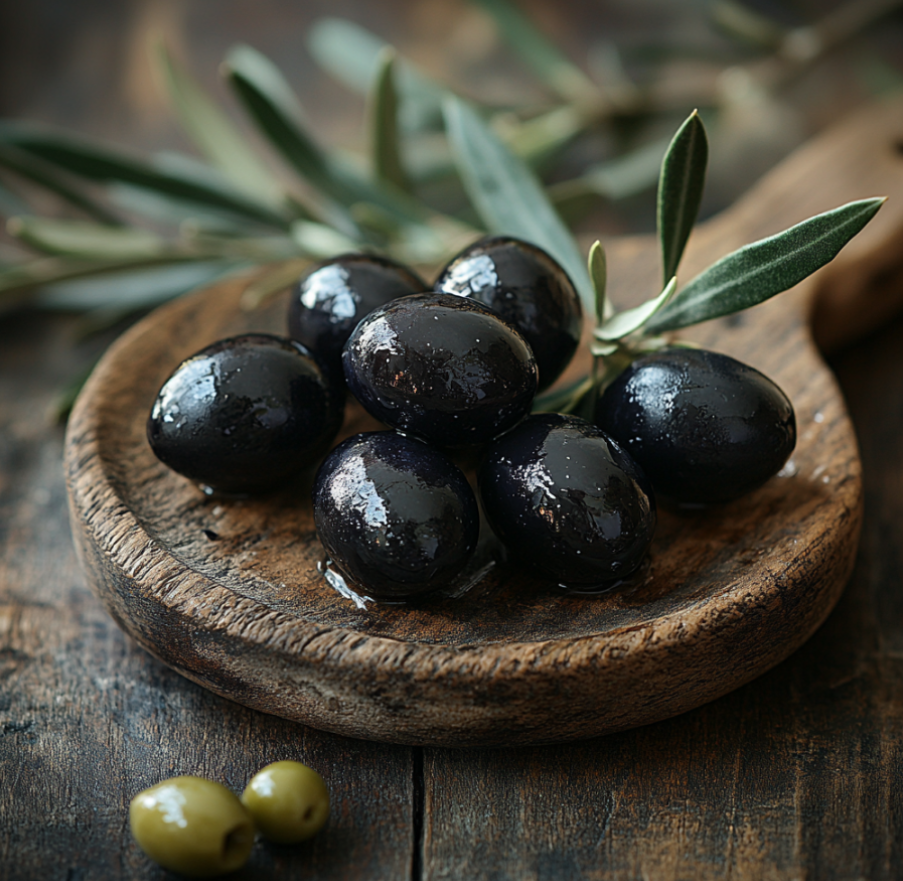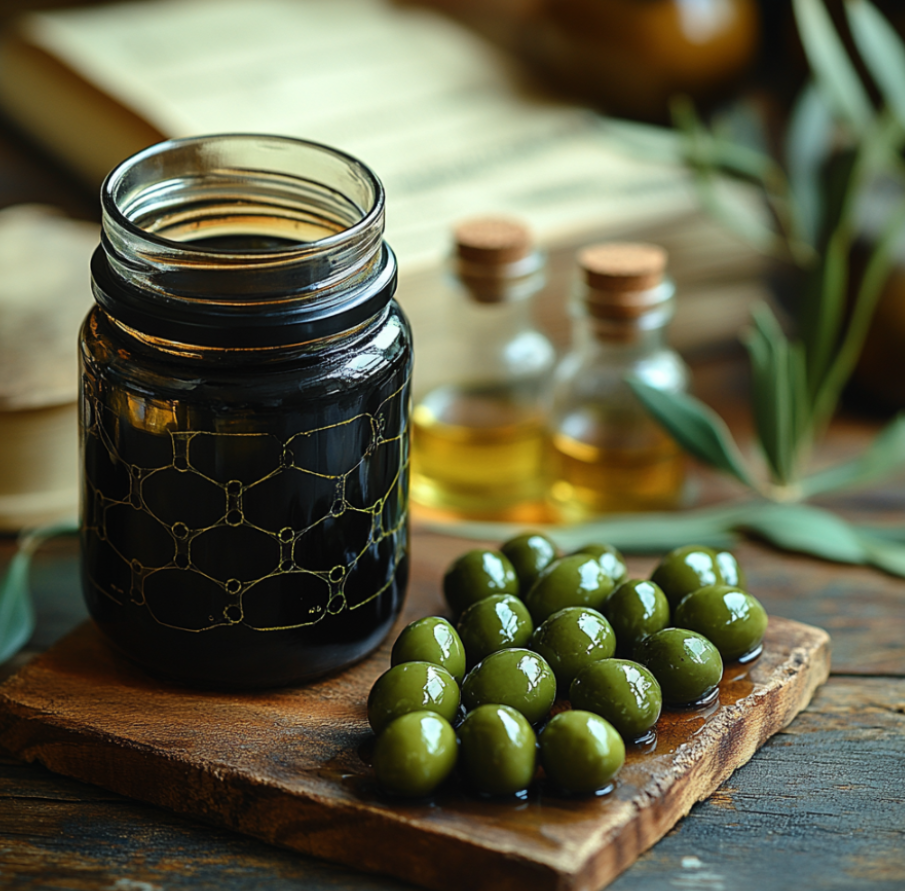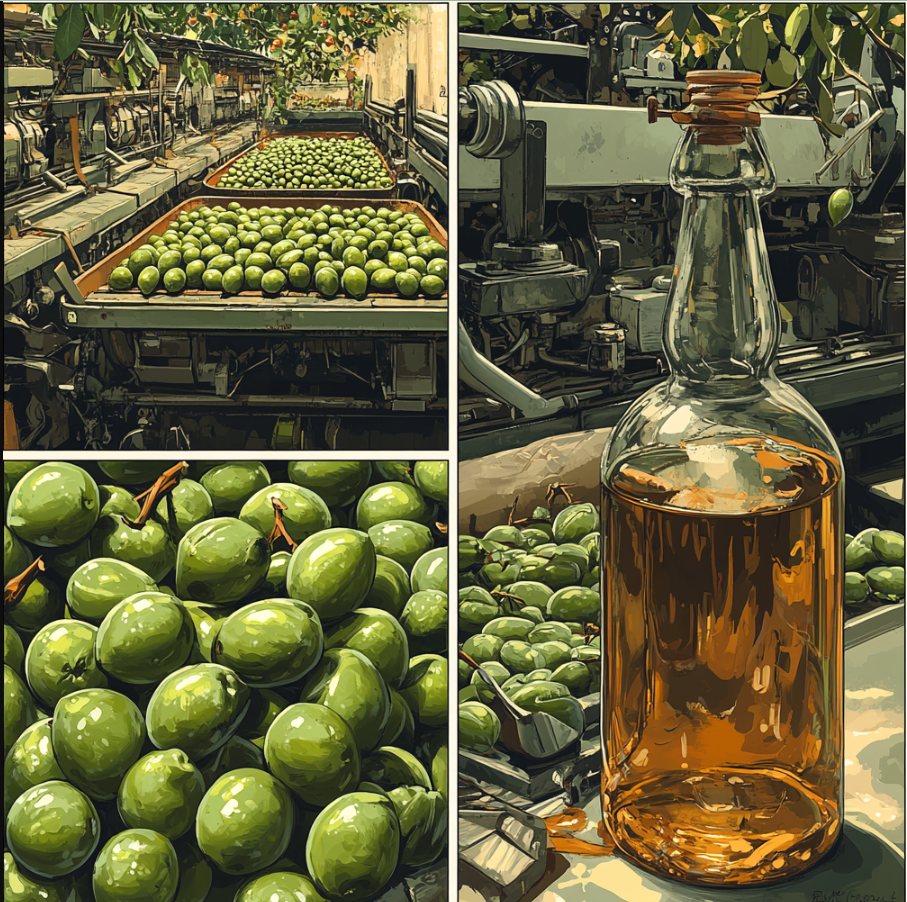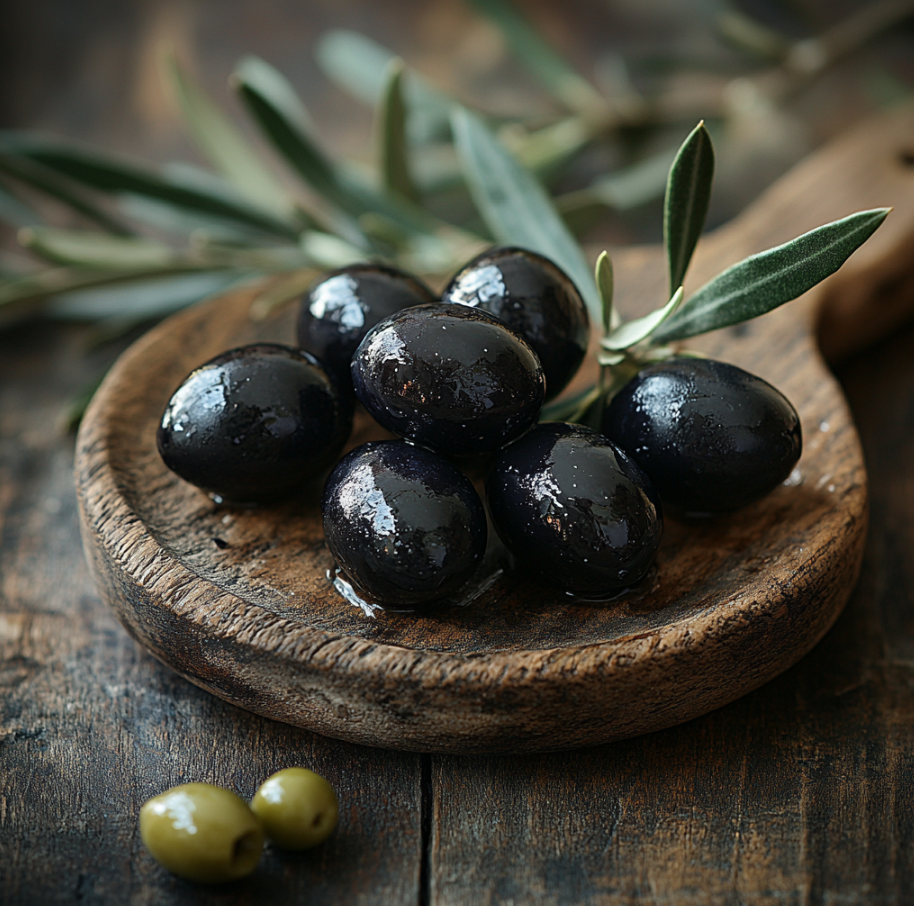Black olives are a favorite ingredient in Mediterranean cuisine, appearing in salads, pizzas, and many other dishes. Their rich flavor and dark color make them stand out, but have you ever wondered how olives turn black? While some olives darken naturally as they ripen, most undergo a specific industrial process to achieve their color.
Natural vs. Processed Black Olives
Olives ripen on the tree, turning from green to deep purple or black as they mature. However, most black olives available in stores go through processing. Producers pick the olives when they are still green and then use methods to change their color.
First, they soak the olives in a lye solution to remove bitterness. After this step, they expose the olives to air, which oxidizes them and turns them black. To ensure the black color stays consistent, manufacturers add ferrous gluconate, a compound that stabilizes the dark shade. You can read more about this process in the olive processing guide.

The Role of Ferrous Gluconate
Ferrous gluconate plays an essential role in keeping processed olives black. After the oxidation process, this compound ensures that the olives maintain their color over time. Without it, olives would lose their dark hue and revert to shades of brown or green.
Naturally ripened olives don’t need this treatment. For those who prefer a more natural product, choosing naturally ripened black olives can be a better option. To see how black olives fit into healthy eating, check out this Mediterranean couscous salad recipe.

The Industrial Process of Turning Olives Black
The process to turn green olives black follows these steps:
- Workers pick the olives while they are still green.
- The olives are soaked in a lye solution to eliminate bitterness.
- Afterward, they expose the olives to air, which oxidizes them and changes their color to black.
- Finally, ferrous gluconate is added to stabilize the black color.
This method creates uniformly black olives that appeal to consumers and can last longer on store shelves.
Health Benefits and Nutritional Value
Both black and green olives offer similar nutritional benefits. Olives provide:
- Healthy fats (mainly monounsaturated fats).
- Antioxidants that support overall health.
- Essential vitamins like Vitamin E and minerals such as iron and calcium.
Processed black olives contain ferrous gluconate, but they still provide the same nutrients as their naturally ripened counterparts. For a delicious recipe using black olives, try this Pasta Alla Norma dish.
Environmental Impact
The production of black olives, especially on a large scale, can affect the environment. Chemicals like lye and ferrous gluconate require careful handling to avoid pollution. The process also uses significant amounts of water, making sustainability a key concern in regions with limited water resources.

Common Myths About Black Olives
Here are two common myths about how black olives are made:
- Myth: Black olives are dyed to achieve their color.
- Fact: The dark color comes from oxidation, not dye. Ferrous gluconate helps stabilize the color.
- Myth: All black olives ripen naturally.
- Fact: Most black olives are picked green and later processed to turn black.
Frequently Asked Questions
Are black olives dyed?
No, their dark color results from oxidation. Ferrous gluconate helps maintain this color.
Are black olives as healthy as green olives?
Yes, both types provide similar health benefits, including healthy fats and antioxidants.
How are canned black olives processed?
Canned black olives are picked green, soaked in a lye solution, and oxidized. Ferrous gluconate is added to stabilize their color.
Conclusion
Whether ripened naturally or processed using oxidation and additives like ferrous gluconate, black olives remain a nutritious and flavorful addition to many dishes. Understanding the difference between natural ripening and industrial processing helps you make informed choices when purchasing olives. For more olive recipe ideas, try this avocado salsa featuring black olives.

